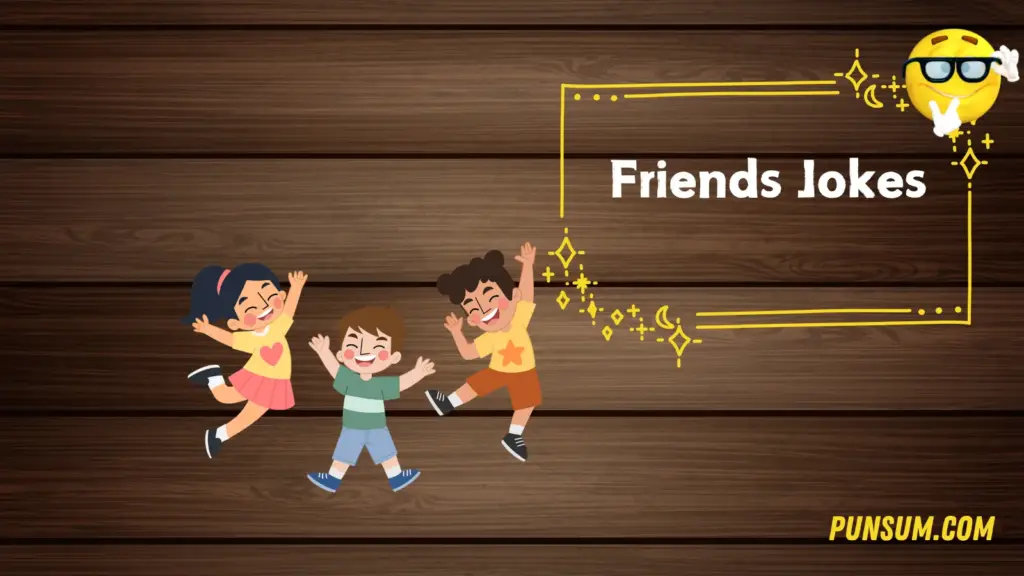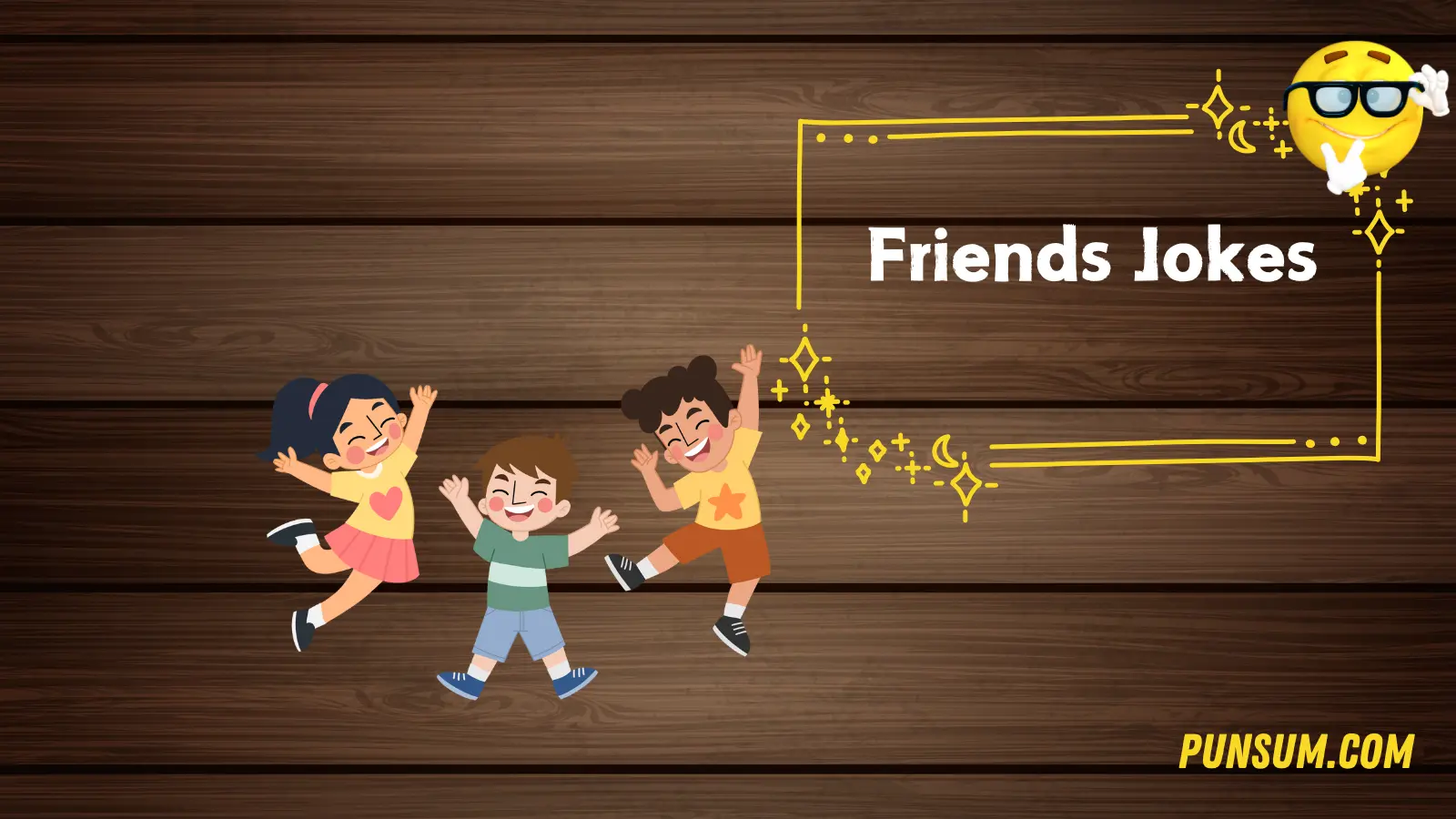
Laughing Through the Pain: Exploring the World of Mean Friend Jokes
Friendships, in all their messy glory, are built on a foundation of shared experiences, inside jokes, and, let’s be honest, the occasional well-placed jab. The line between playful teasing and outright cruelty can sometimes blur, leading to the existence of a unique brand of humor: mean friend jokes. These jokes, often delivered with a wink and a nudge, poke fun at our friends’ quirks, flaws, and embarrassing moments. But why do we tell them? And when do they cross the line?
This article delves into the fascinating world of mean friend jokes, exploring their psychological underpinnings, analyzing their potential benefits and pitfalls, and offering guidance on how to navigate the tricky terrain of humor within friendships. We’ll examine the fine line between good-natured ribbing and hurtful insults, and discuss the importance of context, delivery, and individual sensitivities. Are mean friend jokes a sign of a strong bond, or a ticking time bomb waiting to explode? Let’s find out.
The Psychology of Mean Friend Jokes
At their core, mean friend jokes often serve as a form of social bonding. By playfully teasing each other, friends reinforce their connection and create a shared sense of humor. These jokes can be a way of acknowledging each other’s imperfections and demonstrating acceptance, even if it’s wrapped in a layer of sarcasm. Think of it as a twisted form of affection – a way of saying, “I see your flaws, and I still love you (enough to make fun of them).”
Psychologists suggest that humor, even the slightly edgy kind, can be a coping mechanism. By finding humor in our friends’ foibles, we can normalize imperfections and foster a sense of camaraderie. It’s a way of saying, “We’re all a little bit ridiculous, and that’s okay.” The key, of course, is ensuring that the joke is perceived as lighthearted and not malicious.
The Fine Line: When Jokes Become Hurtful
The effectiveness of mean friend jokes hinges on several factors, including the relationship dynamic, the individual’s personality, and the context in which the joke is delivered. What one friend finds hilarious, another might find deeply offensive. It’s crucial to be mindful of your friends’ sensitivities and to avoid jokes that target their insecurities or vulnerabilities.
A good rule of thumb is to consider whether the joke is based on something the friend can control. Teasing someone about their clumsiness might be acceptable, but making fun of their physical appearance or a past trauma is generally off-limits. Similarly, jokes that perpetuate stereotypes or target protected characteristics (such as race, religion, or sexual orientation) are never appropriate.
Furthermore, the delivery of the joke is just as important as the content. A joke delivered with a genuine smile and a playful tone is more likely to be received well than one delivered with a sneer or a condescending attitude. Body language and facial expressions can significantly impact how a joke is interpreted.
Examples of Mean Friend Jokes (and How to Deliver Them Responsibly)
Let’s look at some examples of mean friend jokes and analyze how they can be delivered responsibly:
- The “Always Late” Friend: “Hey, I’m so glad you could finally make it! Did you have to take a taxi from another time zone?” (Delivery: Said with a smile and a playful eye roll.)
- The “Terrible Cook” Friend: “I appreciate you trying to cook, but I think I just found a new species of unidentified food object in my soup.” (Delivery: Said with a laugh and a genuine expression of mild concern.)
- The “Clumsy” Friend: “Careful! I think you just tripped over air again!” (Delivery: Said with a supportive tone and a hand extended to help them up.)
Notice that in each of these examples, the joke is directed at a specific behavior or characteristic, not at the person’s inherent worth. The delivery is lighthearted and playful, and there’s an underlying sense of affection and acceptance. These are the hallmarks of a well-executed mean friend joke.
When to Draw the Line
There are certain situations where mean friend jokes are simply inappropriate. These include:
- When the friend is already feeling down or vulnerable.
- When the joke targets a sensitive topic or insecurity.
- When the joke is delivered in front of others, especially strangers.
- When the friend has explicitly asked you to stop making such jokes.
If you’re unsure whether a joke is appropriate, it’s always best to err on the side of caution. A simple apology can go a long way in repairing any hurt feelings. Remember, the goal is to strengthen your friendship, not to tear it down.
The Benefits of Mean Friend Jokes (When Done Right)
Believe it or not, mean friend jokes can actually be beneficial to a friendship, provided they are delivered with care and sensitivity. Here are some potential benefits:
- They foster a sense of camaraderie: Sharing a laugh, even at each other’s expense, can create a stronger bond between friends.
- They help us to not take ourselves too seriously: By poking fun at our flaws, we can learn to laugh at ourselves and develop a more balanced perspective on life.
- They provide a safe space for honest feedback: While a mean friend joke might seem like a harsh way to deliver feedback, it can sometimes be more effective than a direct confrontation.
- They create lasting memories: Some of the most cherished memories are often those that involve shared laughter and inside jokes.
Navigating the Nuances of Humor in Friendships
The key to successfully navigating the world of mean friend jokes is to be mindful of your friends’ sensitivities, to deliver your jokes with care and empathy, and to be willing to apologize if you cross the line. Communication is essential. Talk to your friends about what they find funny and what they find offensive. Be open to feedback and be willing to adjust your humor accordingly.
Remember, a good friendship is built on a foundation of trust, respect, and mutual understanding. Humor should enhance that foundation, not undermine it. When used responsibly, mean friend jokes can be a source of joy, connection, and lasting memories. However, when used carelessly, they can damage relationships and create lasting resentment. Choose your words wisely, and always prioritize your friends’ feelings.
Ultimately, the best mean friend jokes are those that are delivered with love and intention, and that leave everyone involved feeling closer and more connected. So go ahead, poke fun at your friends’ quirks – just make sure you do it with a smile and a whole lot of heart. And remember, it’s all in good fun, hopefully. But if not, a sincere apology and a listening ear can go a long way. The goal is to build stronger, more resilient friendships through shared laughter, even if that laughter sometimes comes at the expense of each other. Just be mindful, be respectful, and be ready to adapt your humor to the ever-changing dynamics of your friendships. After all, that’s what good friends are for.
So, embrace the absurdity, laugh at the imperfections, and cherish the unique bonds that make your friendships special. And the next time you’re tempted to deliver a mean friend joke, take a moment to consider its potential impact. If it’s delivered with love and good intentions, it might just be the perfect way to strengthen your friendship and create a lasting memory.
In conclusion, mean friend jokes are a complex and often misunderstood form of humor. When used responsibly, they can foster camaraderie, help us to not take ourselves too seriously, and create lasting memories. However, when used carelessly, they can damage relationships and create lasting resentment. The key is to be mindful of your friends’ sensitivities, to deliver your jokes with care and empathy, and to be willing to apologize if you cross the line. By following these guidelines, you can navigate the tricky terrain of humor within friendships and ensure that your jokes are always a source of joy, connection, and laughter.
[See also: How to Handle Conflict in Friendships]
[See also: The Importance of Laughter in Relationships]
[See also: Understanding Different Humor Styles]

